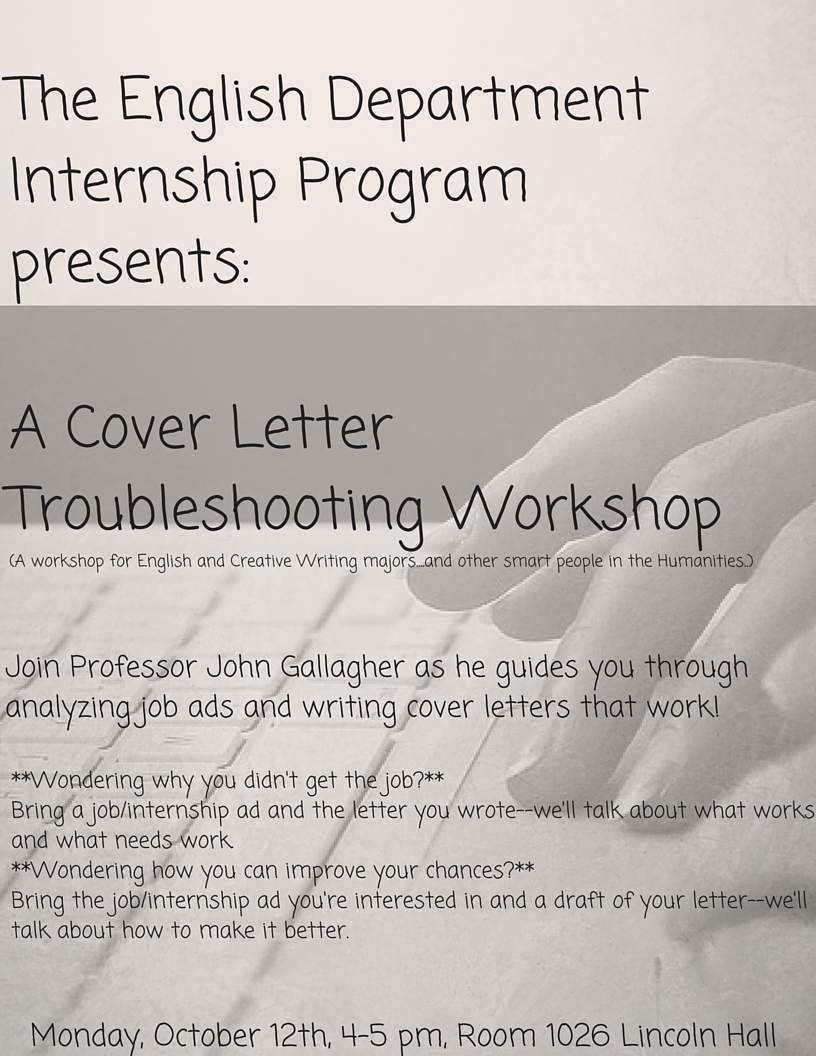Yes, You Should Have a LinkedIn Profile
 If you’re not on LinkedIn yet, you should be. You don’t need to wait until you have an official job title or a clear career objective. LinkedIn has a lot to offer college students, even those who aren’t thinking yet about their plans for after college:
If you’re not on LinkedIn yet, you should be. You don’t need to wait until you have an official job title or a clear career objective. LinkedIn has a lot to offer college students, even those who aren’t thinking yet about their plans for after college:
- Potential employers, mentors, contacts WILL look you up there.
- You can learn a lot about the successful career paths of other people with skills and interests like yours.
- It’s a great way to connect with alumni.
Creating a LinkedIn profile takes about thirty seconds. Creating a good one takes a little longer. At a minimum you should
- Make sure to include a professionally appropriate photo (doesn’t have to be a formal headshot, but it should depict a version of yourself that’s suitable for the workplace). Using the same photo on all the social media platforms you use can make networking easier.
- Give yourself a compelling headline and description. “Sophomore at the University of Illinois” can get you started, but think about ways to “headline” the particular skills you’re developing and the kind of work you want to position yourself for.
- Move carefully past screens and pop-ups that invite you to “connect” by linking to your email or other social media accounts. You can cultivate your network more effectively (and irritate fewer random acquaintances) by waiting until you have your account set up and then “Connecting” directly with relevant individuals through LinkedIn.
- Create a shorter and identifiable version of your LinkedIn public profile URL and add it to your signature line on the email account you use for professional purposes.
- Don’t get LinkedIn Premium–the free version will get you everything you need.
Not sure how it works? Check out these profiles from some of our alumni:
- Dan Hass, copywriter at David & Goliath
- Kaye Foley, associate producer at Yahoo News
- Alex Swanson (current student, but she how she puts it!)
Want to do more with your LinkedIn profile? There’s a lot of advice out there. Here are some places to start:
- 9 Ways to Boost Your LinkedIn Profile
- 5 Tips for Creating a Great LinkedIn Profile
- 31 Best LinkedIn Profile Tips
Is Law School in Your Future?
Some resources to know about if you’re an English or Creative Writing major considering law school:
- UPCOMING: the Law School Fair, October 6, 10am – 2pm, Illini Union ABC
- The Pre-Law Advising Services Blog: regularly updated with events, workshops, advice, information.
- The Prelaw Advising Services website (part of the Campus Center for Advising and Academic Services)

- The University of Illinois Prelaw Honors Society
- The upcoming Department of English Alumni Careers Panel, Oct. 7, 5pm – 6:30pm. Panelists will include a managing partner at a law firm and a Illinois State legislator.
How an Internship Gets You a Job
Career-planning in the humanities is a spiral, not a line.
College students who have dreamed since childhood of a career in mechanical engineering or accounting may experience their future as an arrow that the present shoots into the future: a course in X is followed by an internship doing X at Y company, which then leads to a full-time job at Y.
It doesn’t work like that in English.
There are lots of reasons to do an internship if you’re an English major, but most of them don’t come with the expectation that the internship will relate directly to your coursework and lead to a job doing exactly that thing.
An internship with the Office of Communications for the Institute of Amphibious Basket-Weaving is NOT the path to a career in Amphibious Basket Weaving–or in Underwater Basket Weaving or in Land-Based Basket Weaving. Nor does helping to edit The Soil Science Sonnets Quarterly limit you to a career in soil science or sonnets. The key words? “Communications” and “editing.”
In your courses, you’re honing a wide range of transferable skills: you learn to wrestle with dense and complex texts, to take complicated ideas and explain them simply, to articulate and defend your own interpretations but also to listen carefully to others and incorporate their insights into your thinking, to define problems and identify the information you’ll need to solve them. to break down a daunting task into manageable steps. These are all things you get better at by working with and creating literary texts–but employers don’t necessarily know that. They don’t care particularly in what you majored in–they just want to know what you can do.
An internship can demonstrate that you understand the range of tasks that fall under the heading “editing” and you know which one’s you’re good at. That you understand what an Office of Communications does (and EVERY organization or business has one, though it goes by different names) and you can describe the contributions you can make to it. That you’ve used your excellent teamwork and problem-solving skills in a professional setting and are prepared to do more of the same.
By majoring in English or Creative Writing, you have given yourself a wide-open choice of careers. There is no line directing you to work with words in a particular way for a particular kind of business. You have command of the verbal medium that is indispensable to every human endeavor, and it’s up to you to figure out how you want to be paid to wield your power. An internship won’t narrow your choices, but it can help you figure out the future you want, and bring it into being.


